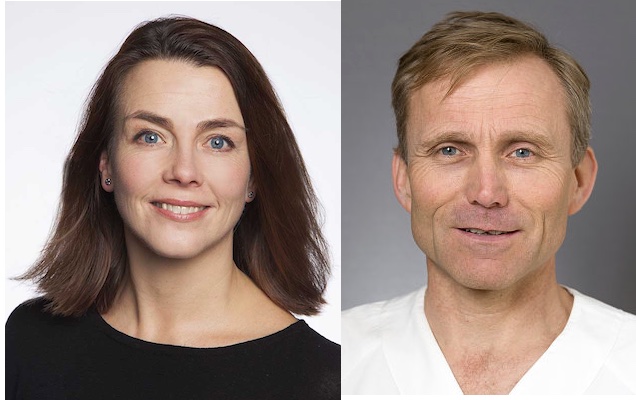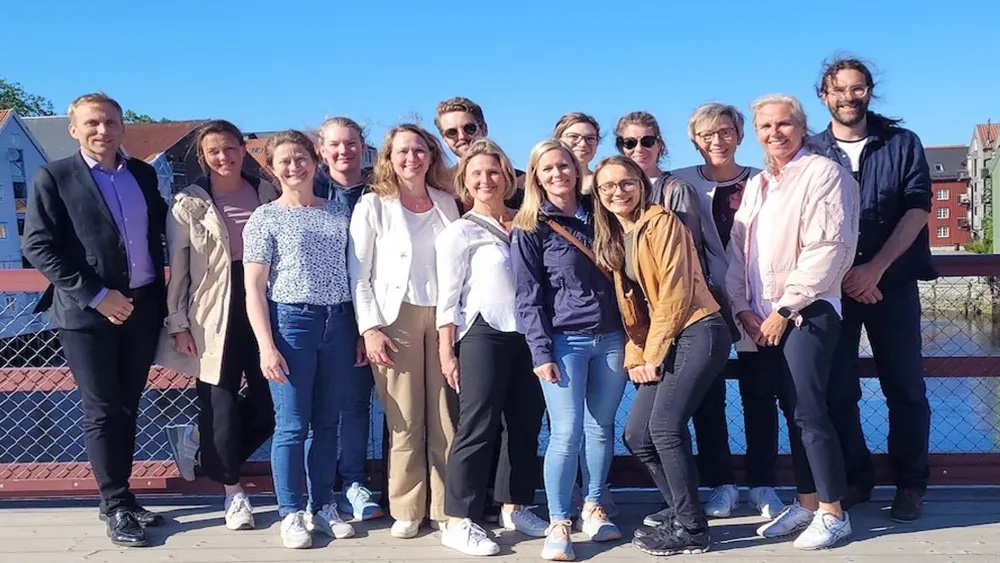New Gemini center established to strengthen research on inflammatory bowel disease (IBD)

Professors Marte Lie Høivik and Asle W. Medhus, with their IBD research group at OUS and UiO, have been granted status as a Gemini center for the period 2023 to 2027, together with partners at NTNU, St. Olavs Hospital and SINTEF.
The new center will be called InTRaCC - Individualized Treatment and Research on Crohn's and Colitis. The partners aim to coordinate resources and expertise, and thus contribute to the development of precision medicine for patients with these diseases.
A Gemini center is a strategic collaboration between professional environments at NTNU, the University of Oslo, St. Olav's Hospital and SINTEF.
IBD is a collective term for the diseases Crohn's disease and ulcerative colitis. These are diseases that cause chronic or recurrent inflammation of the intestine. The main symptoms of IBD are bloody diarrhea and abdominal pain, but the disease can also affect other organs.
The disease often debuts at a young age and is widespread in Norway compared to many other countries.
- We want to gather in a Gemini center to support each other in research tasks of common interest and to highlight and further develop the work and collaboration that is already underway, says Asle W. Medhus.
- Collectively, we become a much stronger unit where we can benefit from each other's research. We work well together and have already collected data and biological material that can be used jointly in projects, he says.
- We see that the incidence has increased a lot in the last 20-30 years and we see more and more of this in children and young people. IBD are chronic diseases that patients have to live with for the rest of their lives and which can cause significant morbidity and burden for them, says Medhus.
The professor explains that there is still much that is unknown in terms of the causes and mechanisms behind the disease.
- There is much about these diseases that is unpredictable. We cannot predict how the disease will progress or whether the patients will benefit from the treatment. We therefore often have to try several treatments before the patient gets an effect, he says, and continues:
- It would be a big step forward for the individual patient if, for example, we could use biomarkers to identify and start effective treatment right from the onset of the disease. Today, the "trial and error method" is a major challenge in the clinic and we need targeted research in this area.
The partners in InTRaCC all have extensive research experience with inflammatory bowel disease. Together they found that a Gemini center is a great way to formalize and further develop the collaboration.
- We who are partners in InTRaCC have complementary skills and can help each other to move research forward. By combining our strengths, we can contribute a lot to each other's research and thus raise the quality even more, says Medhus.
The IBD research group at UiO and OUS is led by Professor Marte Lie Høivik and deals with IBD epidemiology, national and local register data, genetics, in addition to clinical and epidemiological studies. An example is the Nordtreat study, which is a large Nordic RCT on personalized treatment of IBD.
- Here in Oslo, we are mainly clinically and epidemiologically based. We have built up a large research group on IBD at UiO and OUS over many years, and have extensive clinical materials, he says.
The research units at IBD in Trondheim and at SINTEF have a different starting point with, among other things, laboratory-based models for studying IBD.
- At St. Olav's Hospital and NTNU, they mainly work on IBD with a different type of methodology and are more aimed at basic research. They have established methods for advanced basal and translational research, for example the use of organoids to test the effect of drugs, explains the professor.
- SINTEF, for its part, uses robotic models and computer models of various cellular responses and effects of drugs, which they can contribute to joint projects, he says.
There is increasingly fierce competition for international research funds, and it is the best environments that win out.
- Internationally, good and strong professional environments are in demand. Collectively, we have a greater probability of catching up in the fierce competition for international research funds than each environment alone, says Medhus.
- Together we can carry out more extensive projects with great potential to contribute to the international research front, achieve high-impact publications and profile ourselves internationally, he adds.

Links:
Inflammatory bowel disease research group at OUS
Department of Gastroenterology
Original news article from the UiO home page (in Norwegian):
Nytt Gemini-senter etablert for å styrke forskning på inflammatorisk tarmsykdom
